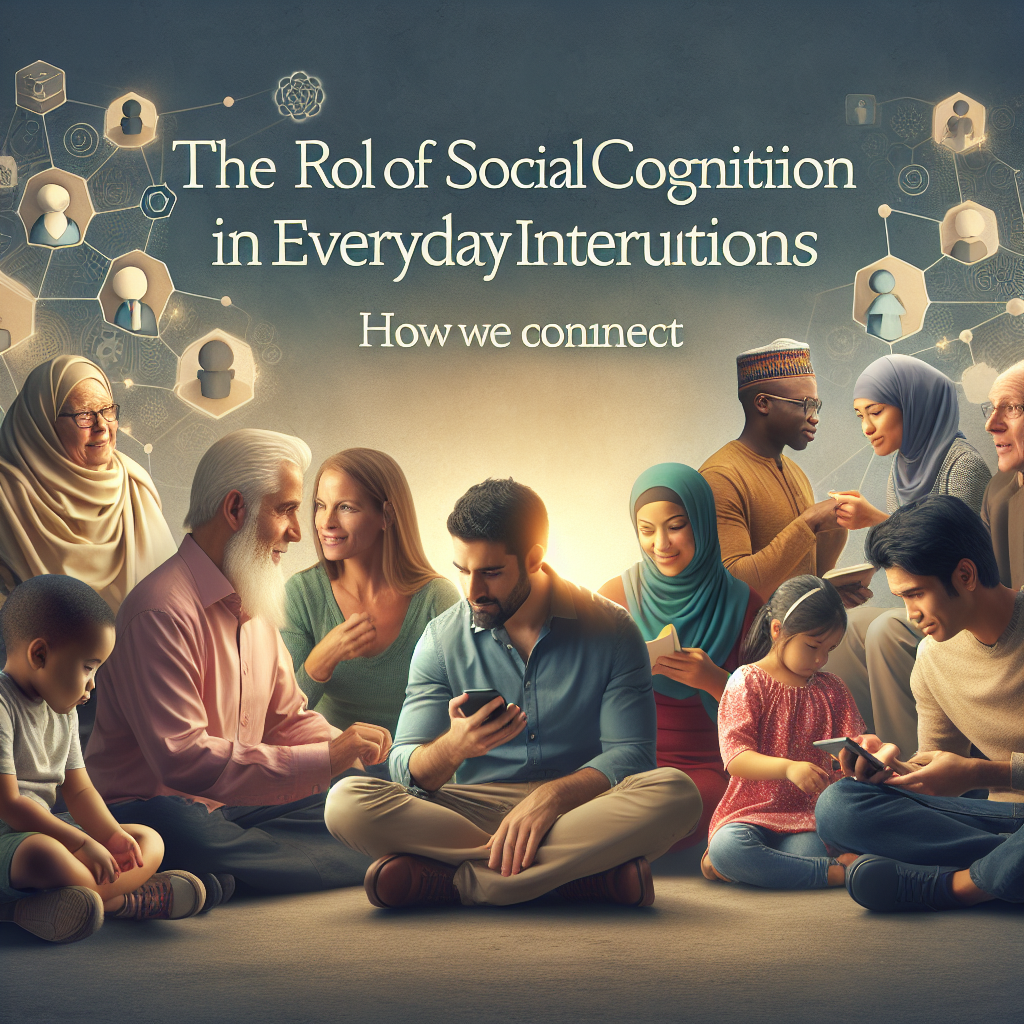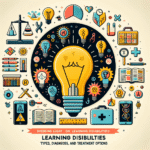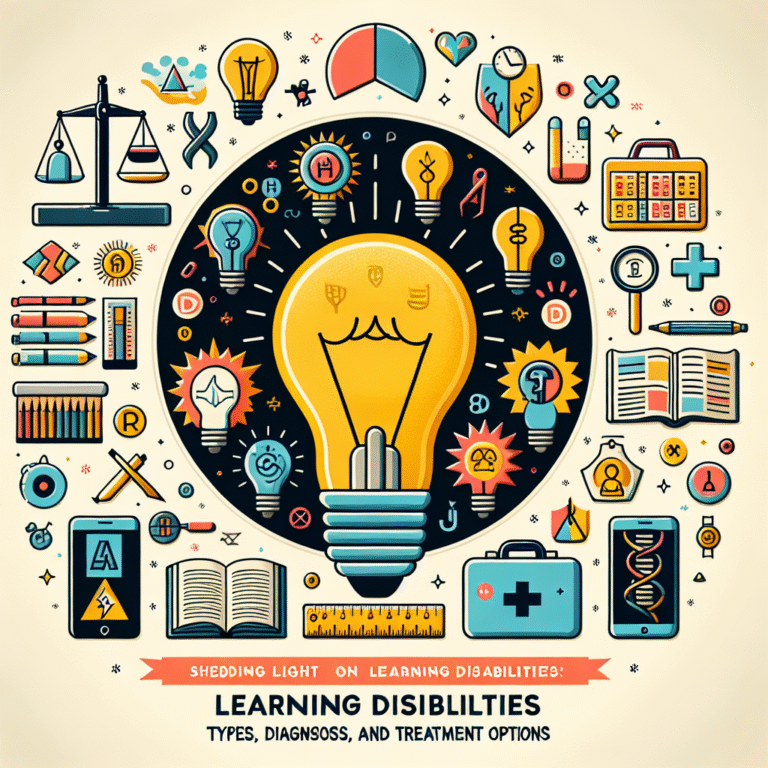
Introduction
In a world increasingly driven by technology and fast-paced communication, understanding The Role of Social Cognition in Everyday Interactions: How We Connect has never been more vital. Every day, we navigate complex social landscapes, interpreting gestures, words, and emotions—often without conscious thought. Social cognition encompasses the mental processes involved in perceiving, interpreting, and predicting the behaviors of others. It shapes our interactions and connections, playing a fundamental role in everything from friendship to professional relationships. This article delves deep into how our cognitive processes influence our social experiences, making us more attuned to each other and our environments.
What is Social Cognition?
Social cognition refers to the ways we think about and understand social situations. It includes how we process social information and how this affects our behavior. This cognitive framework influences our beliefs, attitudes, and expectations during interactions.
The Components of Social Cognition
Social Perception: This refers to how we perceive and interpret the behavior and intentions of others.
Attribution Theory: This explains how we attribute causes to our own and others’ behaviors. For example, do we believe someone’s tardiness is due to a personal flaw or external circumstances?
- Schemas: These are cognitive frameworks that help us organize information. For instance, our experiences shape how we expect interactions to unfold.
The Importance of Social Cognition in Everyday Life
Building Connections
Understanding The Role of Social Cognition in Everyday Interactions: How We Connect is crucial for forging connections. Recognizing social cues allows us to respond appropriately, building trust and rapport with others.
Case Study: The Coffee Shop Connection
In a coffee shop, two strangers may both be ruminating on their day. However, one might smile and make eye contact, while the other remains engrossed in their phone. The first individual’s social cognition allows them to read the situation and create a moment of connection—demonstrating how interaction hinges on social perception.
| Aspect | Engaged Individual | Disengaged Individual |
|---|---|---|
| Body Language | Open and friendly | Closed off (e.g., focused on the phone) |
| Social Cues | Smiles, eye contact | Lack of engagement |
| Potential Outcome | Friendly interaction | Missed opportunity for connection |
Analysis
This case exemplifies how social cognition facilitates or hinders connections. The engaged individual utilizes social cues to foster interaction, while the disengaged person misses the opportunity entirely due to lack of awareness.
Managing Relationships
The Role of Social Cognition in Everyday Interactions: How We Connect also extends to the management of existing relationships. Understanding how people interpret our actions can significantly affect relationship dynamics.
Case Study: Workplace Communication
In a workplace setting, a manager might provide feedback to an employee. If the employee misinterprets feedback as harsh criticism rather than constructive advice, it could lead to decreased morale.
| Feedback Type | Constructive Interpretation | Detrimental Interpretation |
|---|---|---|
| Tone of Voice | Supportive and encouraging | Dismissive and harsh |
| Employee Reaction | Motivation to improve | Feelings of inadequacy |
| Result | Positive performance | Decreased productivity |
Analysis
This scenario illustrates the pivotal role of social cognition in workplace interactions. Misunderstandings can erode relationships unless there’s clarity and empathy in communication.
Social Cognition and Empathy
The Power of Empathy
Empathy plays a central role in social cognition. By recognizing and understanding the feelings of others, we enhance our interpersonal relationships. This is particularly crucial in emotionally charged situations.
Case Study: Supporting a Friend in Crisis
Imagine a friend shares distressing news. A supportive response depends heavily on your ability to empathize and interpret nonverbal cues, like facial expressions.
| Response Type | Empathetic Approach | Dismissive Approach |
|---|---|---|
| Listening | Active listening and validation | Interrupting or minimizing feelings |
| Body language | Open posture, nodding | Closed posture, lack of eye contact |
| Outcome | Strengthened mutual trust | Strained relationship |
Analysis
Empathy enhances the quality of interactions, often making the difference between strengthening relationships and weakening them.
The Impact of Social Media on Social Cognition
Social Media Dynamics
In our digital age, social media significantly influences The Role of Social Cognition in Everyday Interactions: How We Connect. The online environment alters how we perceive social cues, often leading to misinterpretation.
Case Study: Miscommunication in Texting
Text messages lack nonverbal cues, which can lead to misunderstandings. Consider a short reply: “Okay.” This can be interpreted as agreement or disinterest depending on context.
| Context | Positive Interpretation | Negative Interpretation |
|---|---|---|
| Prior Conversation | Affirmative and engaged | Indifferent or annoyed |
| Relationship Background | Trust and familiarity | Tension or unresolved conflict |
Analysis
This case reflects the profound impact of context on social cognition. Miscommunication can easily arise from a lack of social cues, underscoring the need for careful navigation in digital interactions.
Enhancing Social Cognition in Everyday Life
Tips for Improvement
Practice Active Listening: Give full attention when others speak, paraphrasing their words to confirm understanding.
Seek Feedback: Encourage others to share their perceptions to gauge how they interpret your actions.
- Cultivate Empathy: Engage in exercises that promote perspective-taking, such as volunteering or community service.
Conclusion
The insights gleaned from understanding The Role of Social Cognition in Everyday Interactions: How We Connect can significantly enhance our personal and professional relationships. By honing our social cognitive skills, we can better navigate the complexities of modern communication, fostering deeper connections and greater empathy.
Remember, every interaction is an opportunity to apply these principles, making small but impactful changes in how we relate to one another. As you move through your daily life, stay attuned to the social cues that navigate and enrich your interactions.
FAQs
1. What is social cognition?
Social cognition is how we perceive, interpret, and predict social interactions and behaviors, influencing our perceptions of others.
2. How can I improve my social cognition?
You can enhance social cognition by practicing active listening, seeking feedback, and engaging in empathy-building exercises.
3. What role does empathy play in social cognition?
Empathy allows us to understand and resonate with the feelings of others, significantly improving the quality of our interactions.
4. How does social media affect social cognition?
Social media can cause misunderstandings due to a lack of nonverbal cues, altering how we interpret social interactions.
5. Why is social cognition important in the workplace?
Understanding social cognition improves communication, fosters collaboration, and helps manage relationships effectively in a professional setting.
By employing the insights from this article, you can deepen your understanding of The Role of Social Cognition in Everyday Interactions: How We Connect, leading to more fulfilling and meaningful connections in your daily life.












